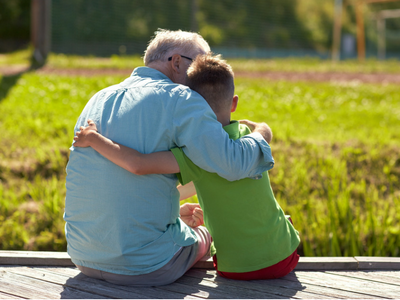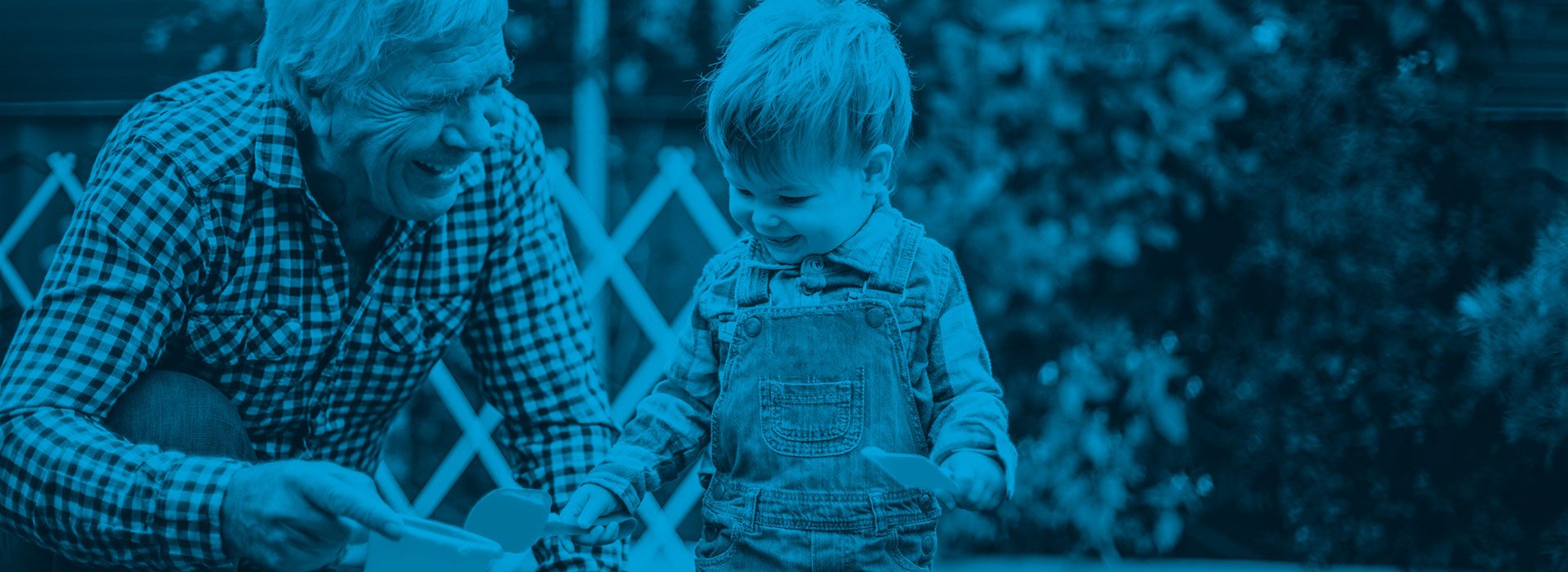When you live with bladder cancer either as a patient or caregiver, you will have to do many difficult things for the first time - like explaining to a child that their loved one has cancer. There are many excellent resources available to help you through this.

How you approach this depends on the age of the child and also on the individual child. Regardless of age, all children need to know:
- The name of the disease, in this case bladder cancer
- How the cancer will be treated
- How the child’s life will be affected
Here are a few tips on how to talk to a child about cancer in general, followed by some answers to questions that children may have about bladder cancer specifically.
1. Plan the conversation in advance.
Decide what you are going to say and find a quiet time when the child will not be distracted. You can try saying something along the lines of, “I have an illness called bladder cancer, which means that there are lumps in my body which shouldn’t be there. I am going to have treatment to get rid of the lumps, but the treatment will make me very tired.”
Cancer Council Victoria's guide Talking to your kids about cancer has a useful reminder to help you plan when and where to have the conversation: "Remember that you are the expert on your children, and your understanding of their individual personalities and needs can guide you."
2. Don’t be afraid to use the word ‘cancer’.
Instead of using a euphemism like ‘boo-boo’, or saying something vague like ‘Grandpa is sick’, identifying the cancer by name invites the child into discussions about the illness. Trying to protect children from difficult news may result in them being misinformed, confused, angry, and mistrustful of the adult. You can say something like, “I know it’s scary to be told that someone you love has cancer, but it’s less scary once you know more about it.”
3. Reassure children that their needs will be met.
Reassure children that they will be taken care of. For example, “I will take you to school while Dad is having treatment. You will still be able to go to your after-school activities. Even though some things may change, you will always be cared for.”
4. Allow children to ask questions.
Invite children to ask any questions they may have. If you don’t know the answer, say that you will find out for them. Some younger children may think that they caused the disease by being bad or thinking bad thoughts about the ill person. Reassure them that they didn’t cause the cancer by anything they did or thought. Younger children may also think that cancer is contagious. You can tell them that, “Cancer is not like the cold or flu. You can’t catch it from another person.”
5. Maintain the children’s regular routines as much as possible.
In times of uncertainty, children may take comfort from a regular routine. So try and maintain as many familiar routines as possible.
Common Questions and Answers
What is bladder cancer?
Your body is made up of millions of little parts called cells. A normal healthy cell will copy itself and split into two and you get two healthy cells. This is how new cells replace old cells. Cancer happens when cells start behaving badly and don’t act like they should. Sometimes bad cells can start splitting out of control and the bad cells come together to form a lump called a tumour. The bladder is the part of your body that stores urine. Bladder cancer is when cells start behaving badly in your bladder. The cancer can spread from the bladder to other parts of the body.
What causes bladder cancer?
We don’t know exactly what causes bladder cancer. We also don’t know why some people get bladder cancer and others don’t. We do know that no one can cause someone else to get cancer. It’s nothing any of us did that made it happen.
How is bladder cancer treated?
There are different treatments for bladder cancer. One is surgery, where doctors cut out the tumour or bad cells. Another treatment is intravesical therapy where doctors put medicines directly into the bladder. Then there is chemotherapy, or chemo for short. Chemo are powerful medicines that kill cancer cells. Chemo can be injected directly into the body or given as a pill form. There is also radiation therapy, which uses powerful energy beams to kill cancer cells. These beams zap the bad cancer cells. One final treatment for bladder cancer is immunotherapy. Immunotherapy is medicines that help the body’s own immune system destroy cancer cells. It’s a bit like a war in the body and the immunotherapy medicines signal to the immune system army to recognise and destroy bad cancer cells.
Dealing with the question of death
Children may ask if the ill person will die. Even if they don’t ask, it is a good idea to prepare to address the issue. It is a difficult and scary question, and here are some approaches to this question:
“Everyone will die eventually, but people can have bladder cancer and still live for a long time.”
“We don’t know right now what’s going to happen. I’ll know more after my treatment, and then I will tell you.”
“I don’t want you to worry about the future, but whatever happens, I want you to know that you will be loved and cared for.”
This is a difficult topic and one that you might want to discuss with your social worker, counselor, nurse or doctor. You may also want to read more about the topic. The American Cancer Society, for example, has comprehensive resources on talking to children about a loved one's terminal illness.
Children’s responses to a loved one with cancer and how to support children
How children respond to the situation of a loved one with cancer depends on the age of the child. Of course each child is an individual and will respond in their own way, but the following are some general responses by age group.
Ages 0-2
Even though babies and toddlers have a limited understanding of disease, and they may not have the verbal skills to talk about it, babies and toddlers are aware of changes to their environment. They may react to separation from the parent, and changes to their routine. This can result in them being fussy, clingy and having tantrums. Their eating and sleeping habits may also change. Parents can support toddlers by sticking to the child’s routines, limiting the number of different caregivers and making sure caregivers follow the child’s routines.
Ages 3-5
Young children of this age may react to separation from the caregiver and changes to their routine, and they may imagine explanations for the loved one’s illness. This can result in separation distress, irritability and aggressive behaviour, like hitting and biting. They may also regress in behaviour, such as returning to thumb sucking or wetting the bed. Caregivers can support children of this age by explaining cancer and the treatments in simple terms. They can also reassure the child that nothing they did or thought caused the illness. Keep consistent routines and, where possible, allow the child to have choices when there are changes in routine.
Ages 6-11
Children of this age may feel sad, worried, angry and guilty when a loved one has cancer. They will be affected by loss of activities because of scheduling changes. They may complain of headaches and stomach aches in response to the situation. They may cope by staying busy and distracted. Children of this age have a better understanding of disease, so caregivers can give concrete explanation of illness and treatments, and also explain the difference between symptoms of illness and side effects of treatments. Caregivers may also want to let the child’s teachers know, so they can monitor the child at school.
Ages 12-18
Teenagers have a much deeper understanding of cancer. Teenagers may react to the situation by being angry, rebellious and engaging in risk-taking behaviour. They don’t want to be seen as different from their peers because their loved one is sick, and may withdraw from friends and family, and avoid the person who is ill. Caregivers can support teens by providing clear information about diagnosis and treatment, and also providing opportunities for counselling. They can talk to teens about role changes happening in the family and give them choices about new responsibilities.
References
http://www.tellingkidsaboutcancer.com/AgeAppropriateAdvice
Moore, C.W., Rauch, P.K. (2017) Parental cancer. In Children and young people’s response to parental illness: A handbook of assessment and practice. (pp.106-129). Boca Raton, FL: CRC Press.


